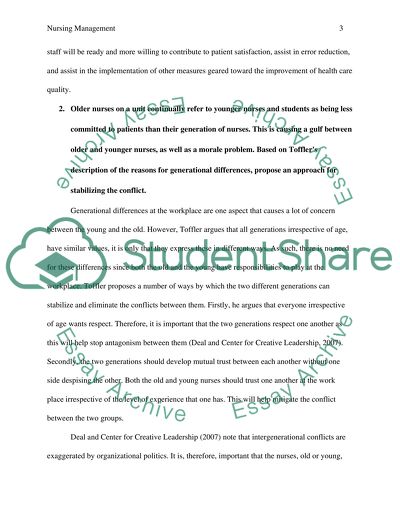Cite this document
(“Nursing management Assignment Example | Topics and Well Written Essays - 1750 words”, n.d.)
Retrieved from https://studentshare.org/nursing/1397063-nursing
Retrieved from https://studentshare.org/nursing/1397063-nursing
(Nursing Management Assignment Example | Topics and Well Written Essays - 1750 Words)
https://studentshare.org/nursing/1397063-nursing.
https://studentshare.org/nursing/1397063-nursing.
“Nursing Management Assignment Example | Topics and Well Written Essays - 1750 Words”, n.d. https://studentshare.org/nursing/1397063-nursing.


